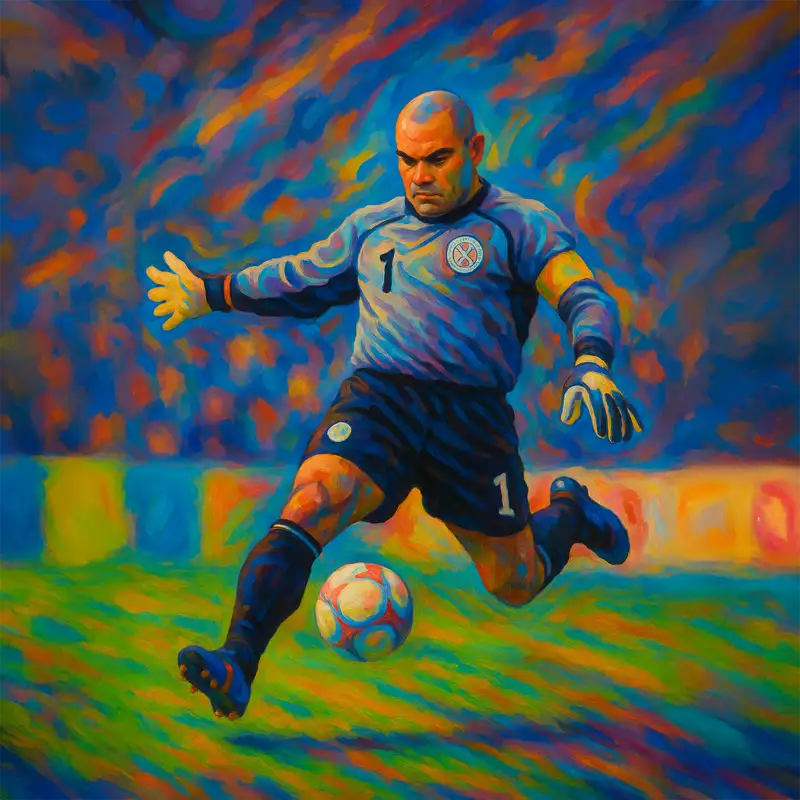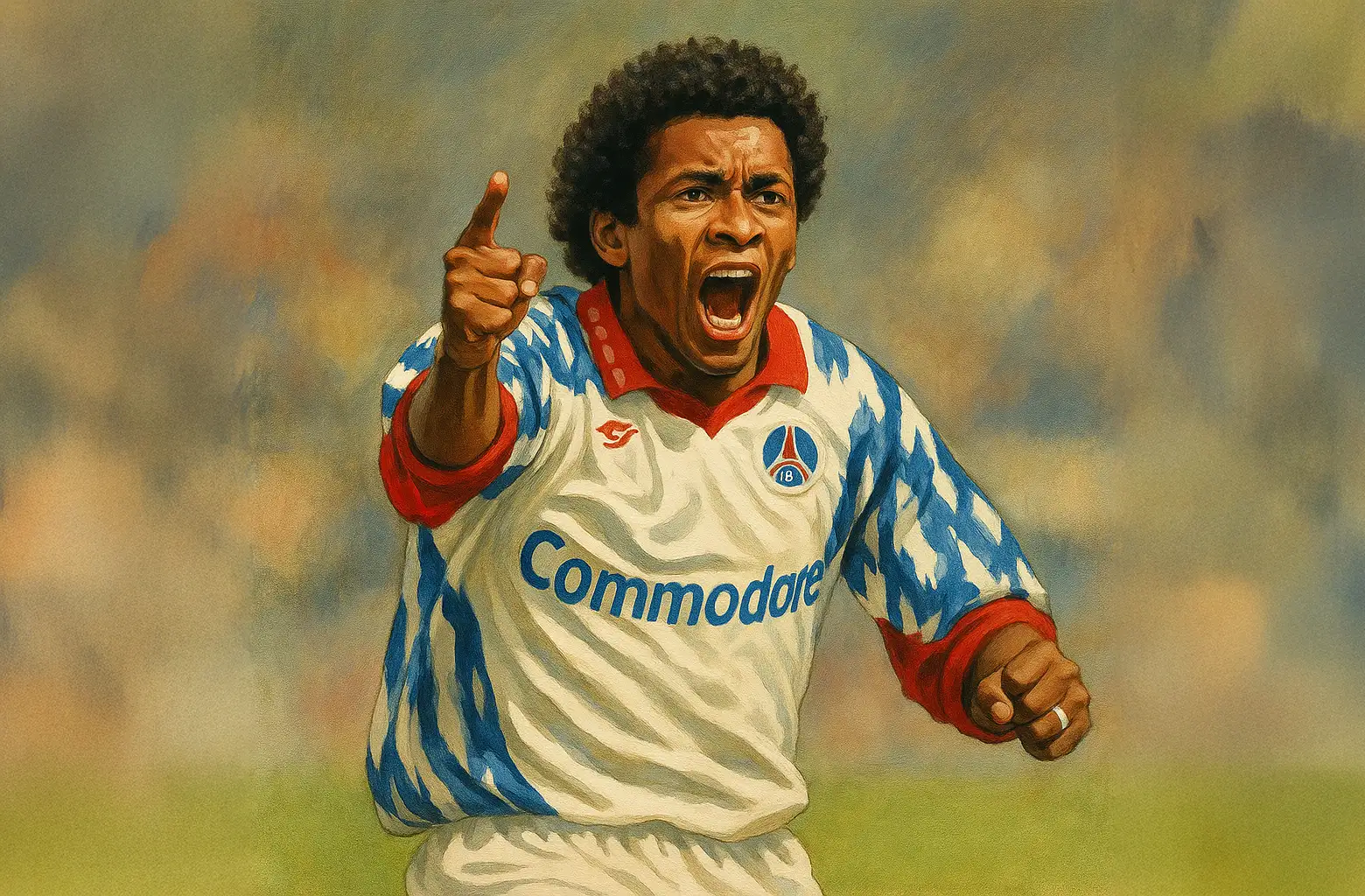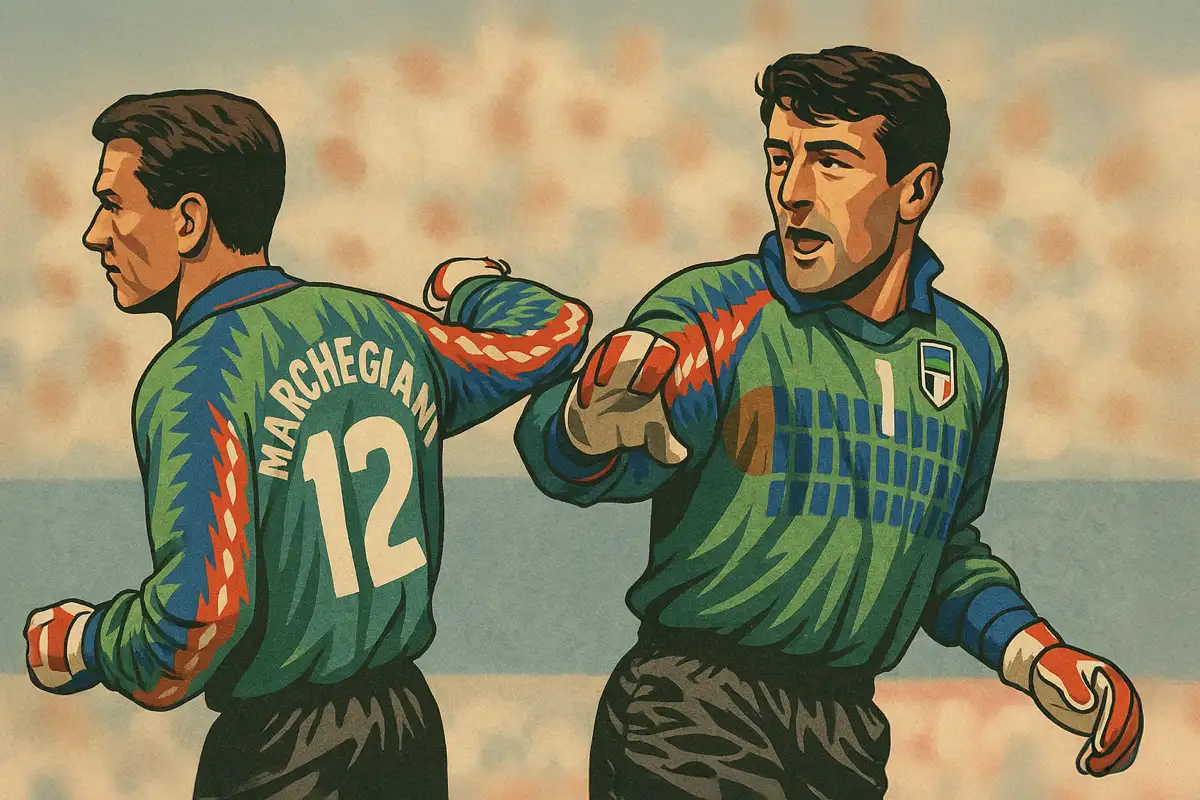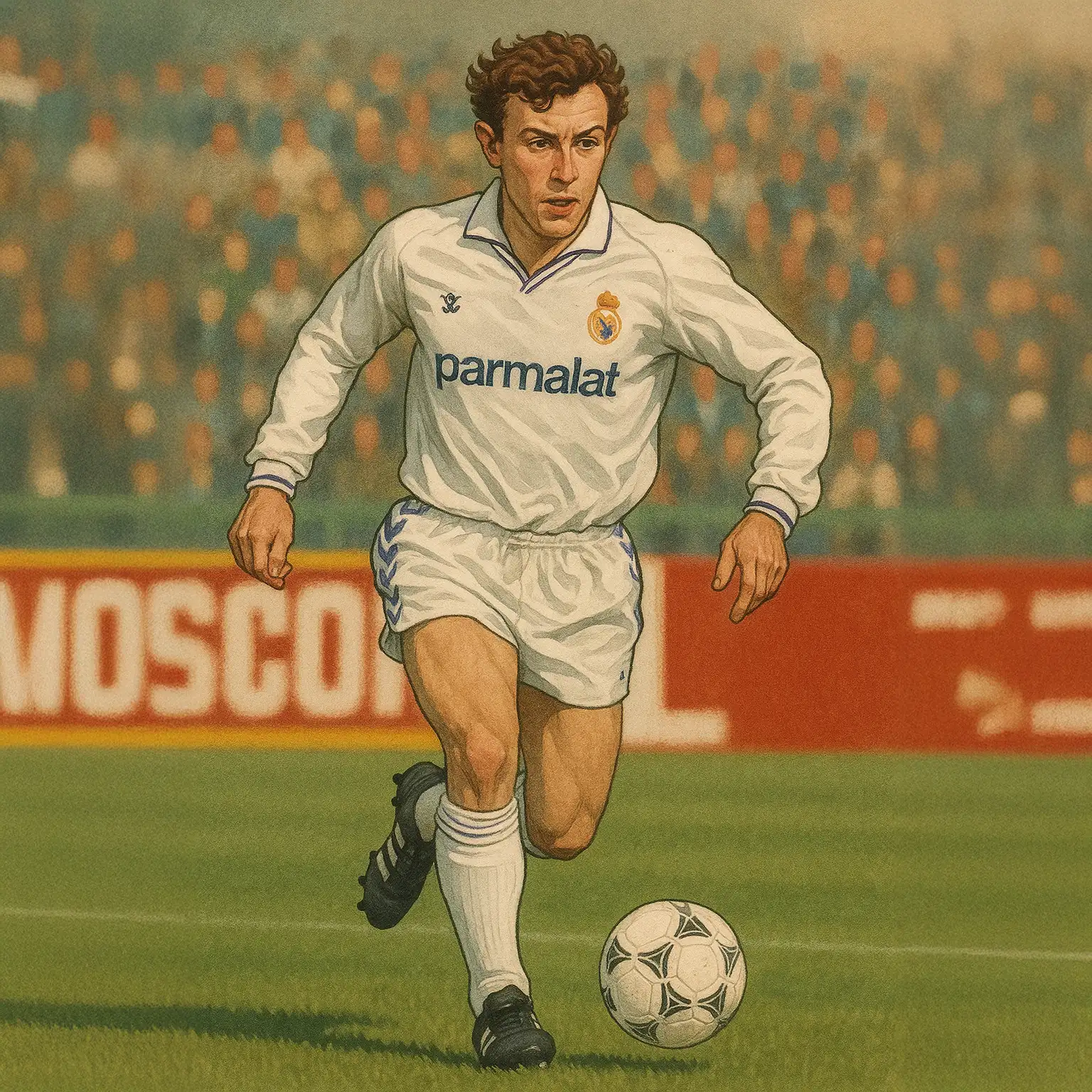
He could stop you. He could score on you. And he could insult you in three languages while doing both. But for all the chaos, charisma and command, one question remains unanswered: why didn’t José Luis Chilavert ever play for a European giant?
The Man from Luque
José Luis Félix Chilavert González was born on July 27, 1965, in Luque, Paraguay. A city of dust and devotion, where football is not merely a pastime but a birthright. One of four siblings in a modest family, young José had to fight for every pair of boots, for every patch of grass to play on, and for every chance to be seen.
He was never just a goalkeeper. Not even at the beginning. He was too aggressive, too vocal, too sure of himself. He had the hands of a shot-stopper and the swagger of a No. 10. It didn’t take long before he became the most fascinating figure in Paraguayan football.
He was nicknamed “The Bulldog” and often wore a cartoon bulldog on his goalkeeper jersey—a visual warning to forwards who dared get close.
The Rise Through South America
Chilavert’s professional debut came in 1982, at just 17, with Sportivo Luqueño. He stayed for a single season before moving to Guaraní, and then quickly to Argentina’s San Lorenzo in 1984—a move that launched his name into continental relevance.
In a country obsessed with its footballing heroes, Chilavert stood out. Not just for his reflexes, but for his attitude. He screamed at his defenders, gestured theatrically, and started shooting free-kicks in training.
In 1988, he joined Real Zaragoza in Spain. It was supposed to be his springboard to Europe’s elite. And yet, it never happened. Zaragoza was turbulent, Chilavert was volatile, and the fit was awkward. He was a starter for his first two seasons, but played only nine matches in his final year, 1990–91, as giant Andoni Cedrún regained the starting role.
“The fans used to freak out,” he later said. “They’d scream at me to get back in goal when I ran out with the ball at my feet.”
Still, it was there that he began practicing free-kicks and penalties seriously. He would stay behind after training to take between 80 and 120 free kicks — improving consistently until the club eventually let him take them in games.
Vélez: The Kingdom He Built
When Chilavert signed for Vélez Sársfield in 1991, the club had only one league title in its entire history. By the time he left in 2000, they had won it all: four league titles, one Copa Libertadores (1994), one Intercontinental Cup (against Capello’s AC Milan), one Supercopa Sudamericana, one Recopa Sudamericana, one Interamerican Cup.
He didn’t just join a club. He transformed it.
And he started scoring. Properly.
It began with penalties. Then came the free-kicks—powerful, curling, calculated. In the 1996–97 season alone, he netted eight goals. He became the second-highest goalscoring goalkeeper of all time, with 67 career goals (62 in club football, 5 for Paraguay), behind only Rogerio Ceni.
In 1999, he scored a hat-trick against Ferro Carril Oeste—three penalties in a single game. One of only three goalkeepers in football history to do so.
He was voted IFFHS World Goalkeeper of the Year in 1995, 1997, and 1998.

The Fire That Burned Everything
But the Chilavert legend is incomplete without the fire. And there was always fire.
He fought with teammates. He fought with managers. He fought with opponents.
He once spat on Brazilian left-back Roberto Carlos after a World Cup qualifier. He called Diego Maradona “a bad example to children”. He was suspended for four matches for punching Faustino Asprilla during a 1997 World Cup qualifier. The feud turned so dark that Asprilla later admitted he had to talk a hitman out of killing Chilavert.
He even received a suspended prison sentence for assaulting a physiotherapist.
He was loved or hated. There was no in-between.
Off the pitch, he was equally fearless. He denounced corruption in FIFA and CONMEBOL. He took political stances, supported labour causes, and even ran for President of Paraguay in 2023.
“
He had it all: talent, leadership, a global profile, even marketing value. He was on the cover of FIFA 99. He had the stats, the charisma, the trophies.
The National Icon
Chilavert played 74 times for Paraguay, scoring 8 goals, and captained the side at two World Cups.
In France 1998, he was the soul of the team. Paraguay reached the Round of 16 and faced the hosts. Chilavert was magnificent, holding France scoreless for 113 minutes before Laurent Blanc’s golden goal ended the dream. Chilavert wept, but he left the tournament having been selected for the FIFA Team of the Tournament.
In Korea/Japan 2002, at age 36, he captained Paraguay again. They reached the Round of 16, where they lost narrowly to Germany.
So… Why Not a Giant?
He had it all: talent, leadership, a global profile, even marketing value. He was on the cover of FIFA 99. He had the stats, the charisma, the trophies.
And yet: no Real Madrid, no Barcelona, no Juventus, no Milan.
Why? There are many reasons we can think of:
His personality scared clubs. European giants feared a player who brought so much controversy.
He had total control at Vélez. He was captain, leader, free-kick taker, voice of the club.
He was bigger than the game. Clubs want players. Chilavert was a movement.
And perhaps, most importantly, he didn’t care. He lived on his own terms.
Legacy
Chilavert retired in 2004 after short stints at Strasbourg (where he won the Coupe de France) and Peñarol.
Characters like him don’t come around often. And while some of his actions and comments were condemnable, figures like Chilavert are essential to the soul of football. To the fans. To the spectacle. They remind us of a time when players weren’t paralysed by the fear of social media scrutiny. They remind us that football, at its best, is theatre.
Chilavert wasn’t smooth. He wasn’t polite. But he was unforgettable.
A Giant Without the Badge
Why didn’t Chilavert ever join a top European club?
Maybe because they weren’t ready.
Not for a goalkeeper who scored 67 goals.
Not for a captain who made the armband look too small.
Not for a warrior who made the penalty area his throne.
Chilavert didn’t need a giant club to be a giant.
He was the club. He was the legend.
And legends, sometimes, don’t fit into anyone else’s story.
They write their own.
Article Source: momblogsociety.com
Products: homesnugs.com

Valdo – provisory title
He dribbled like a dancer, played with a smile, and made chaos look beautiful. A rebel with the ball, and a genius no system could ever hold down.

Italy’s 90’s Goalkeepers – provisory title
He dribbled like a dancer, played with a smile, and made chaos look beautiful. A rebel with the ball, and a genius no system could ever hold down.

Emilio Butragueño – provisory title
He dribbled like a dancer, played with a smile, and made chaos look beautiful. A rebel with the ball, and a genius no system could ever hold down.

